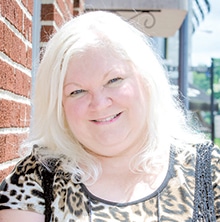
People in Europe did not have a concept of virgin land, and I did not have a concept of land that had been developed and cultivated over hundreds of years. I grew up on a dirt road with so little traffic that a car coming down the road caused us to look out of the window because it broke the silence. In those days, Gwinnett had forests, pastures, and many people were growing their own vegetables and raising their own meat. I remember seeing many ranch-style, brick homes and while most people were not living in poverty, they did not live a life of wealth either. In the 1970’s so much construction took place that the forests and rolling pastures began to disappear. Subdivisions sprang up, and with that came businesses. Gwinnett was probably most affluent from the 1970’s-1990’s with many people building large homes and living comfortable lifestyles. With all of the development in Gwinnett and recession in other parts of the country, people began moving to Georgia to find employment. We had a great climate and the cost of living was reasonable. Unfortunately, many of these people needed services and resources and the affluence Gwinnett had once enjoyed began to erode as more people in need took resources without giving back. According to recent reports, Gwinnett County Schools have up to 80% of students on the free or reduced lunch program. It does not take a rocket scientist to realize that if more people are taking from the system than there are people contributing to the system, quality of life begins to decline. We may have 80% of our students in poverty, but it doesn’t mean that we can’t ALL contribute. Those without money can volunteer their time and talents and be part of the solution. We can all take pride in making our surroundings better for all.
A trend in Scotland is for communities to compete against other communities to be the cleanest or most beautiful. The sense of pride everyone takes in their community builds support and they develop strong friendships working toward a shared goal. Cleaning and beautifying are things everyone can do from our youngest to our oldest and from our poorest to our wealthiest. Let’s change our mindset and encourage everyone to be included in making our community the best it can be. While I certainly support helping others in need, I also believe we learn important lessons when we contribute. If we have not sacrificed of our time and resources, how can we appreciate it when someone does it for us?
Rotary clubs all over the world work with communities to enhance economic and community development. Every community has different needs and different opportunities to serve. Tremendous progress has been made to reduce global poverty. According to the World Bank, 1.92 million people lived on less than $1.25 a day in 1990 compared to 1 million in 2011. Since Rotary International has made October the month to highlight economic and community development, it is time we all look for ways to serve. There are so many needs in our community that most of us won’t have to go further than the nearest street corner to help someone else.
Leigh is a proud Rotarian and CEO of Creative Enterprises, Inc., a not for profit, training, and employment, community rehabilitation program for adults with disabilities. A lifelong resident of Gwinnett County, Leigh divides her time between advocating for people with disabilities, enjoying her children, grandchildren, and friends, helping her doTerra essential oil customers, traveling, and focusing on her spiritual journey to appreciate how we are all connected.

